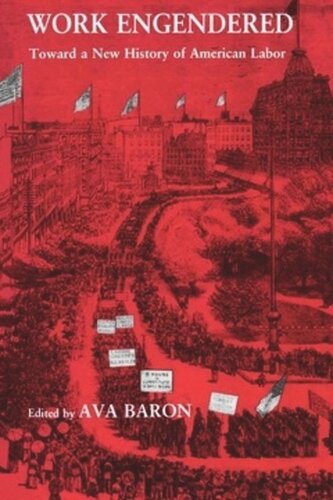

Most ebook files are in PDF format, so you can easily read them using various software such as Foxit Reader or directly on the Google Chrome browser.
Some ebook files are released by publishers in other formats such as .awz, .mobi, .epub, .fb2, etc. You may need to install specific software to read these formats on mobile/PC, such as Calibre.
Please read the tutorial at this link: https://ebookbell.com/faq
We offer FREE conversion to the popular formats you request; however, this may take some time. Therefore, right after payment, please email us, and we will try to provide the service as quickly as possible.
For some exceptional file formats or broken links (if any), please refrain from opening any disputes. Instead, email us first, and we will try to assist within a maximum of 6 hours.
EbookBell Team

0.0
0 reviewsIn tobacco fields, auto and radio factories, cigarmakers' tenements, textile mills, print shops, insurance companies, restaurants, and bars, notions of masculinity and femininity have helped shape the development of work and the working class. The fourteen original essays brought together here shed new light on the importance of gender for economic and class analysis and for the study of men as well as women workers. After an introduction by Ava Baron addressing current problems in conceptualizing gender and work, chapters by leading historians consider how gender has colored relations of power and hierarchy—between employers and workers, men and boys, whites and blacks, native-born Americans and immigrants, as well as between men and women—in North America from the 1830s to the 1970s. Individual essays explore a spectrum of topics including union bureaucratization, protective legislation, and consumer organizing. They examine how workers' concerns about gender identity influenced their job choices, the ways in which they thought about and performed their work, and the strategies they adopted toward employers and other workers. Taken together, the essays illuminate the plasticity of gender as men and women contest its meaning and its implications for class relations. Anyone interested in labor history, women's history, and the sociology of work or gender will want to read this pathbreaking book.